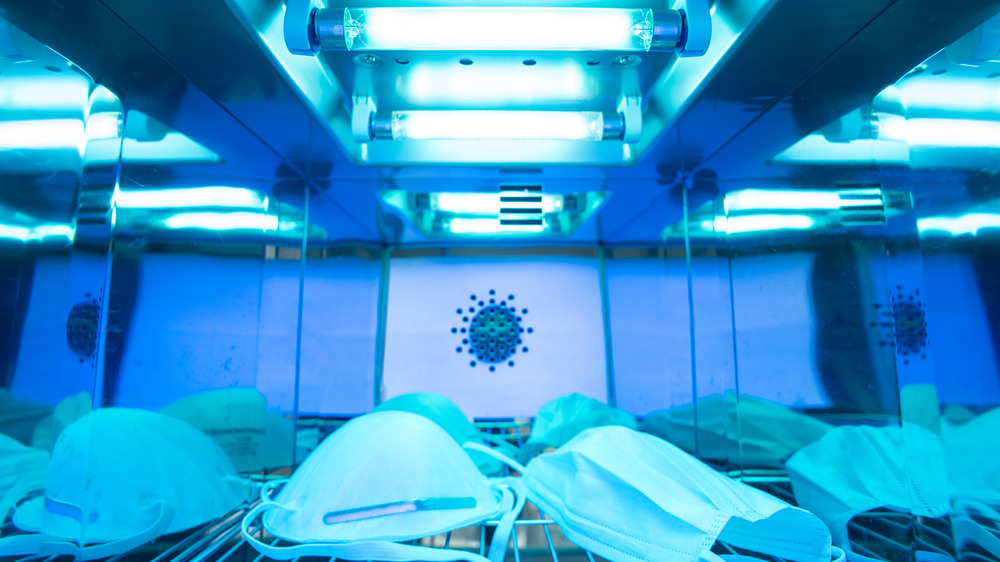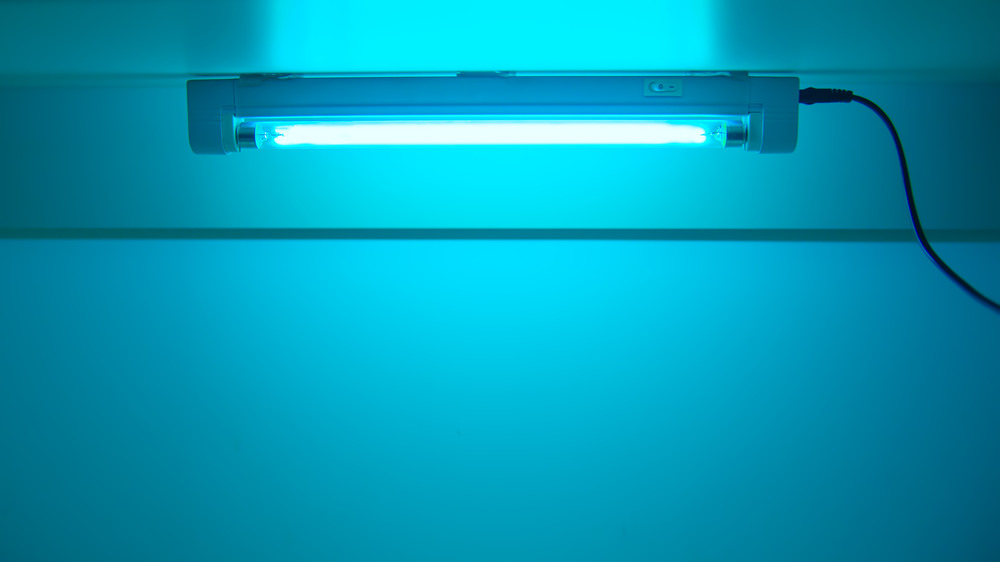Can UV Light Really Kill COVID-19?
To stay safe from COVID-19, many of us are looking for the most effective ways to clean and disinfect the areas where we live, work, and play. You may have heard that UV light is one way to fight coronavirus. Should you shop for a UV light of your own? As it turns out, UV light may kill coronavirus, but there are a few things to know.
First of all, there are several kinds of UV light, according to Healthline. UVA and UVB light rays are what we're exposed to by sunshine. They're damaging to your skin and can cause sunburn, skin cancer, and aging. UVC light rays still come from the sun, but they are mostly filtered out by the Earth's ozone. These rays are ultra-high-energy and thus the best at killing germs.
UVC rays have long been known to destroy the protein shell of SARS-Coronaviruses. However, those are different viruses than the SARS-CoV-2 virus that causes COVID-19. While it is thought that UVC light will kill SARS-CoV-2, there are few studies to provide guidance on the dosage and duration of exposure necessary to do so.
Safety is important with UV light
One study published in the American Journal of Infection Control examined what wavelength of UVC light is most effective against SARS-CoV-2. Researchers discovered that far-UVC light, which has wavelengths between 207-222 nanometers, killed up to 99.7 percent of the virus in 30 seconds. Scientists in the study did conclude that more research is needed in real-world settings.
It's important to know that in order for UV rays to destroy germs, they have to have direct contact with the molecules. So, if germs are on the underside of a surface, covered by dust or dirt, or in shadow, they will not be impacted, according to Healthline.
Additionally, the FDA cautions that direct exposure of skin or eyes to UVC light can cause injury. Never look at a UVC light or place the light on your skin. Some UVC lamps also create ozone or contain mercury. Thus, they must be handled carefully, particularly when broken.
Many lights that produce UVC rays are available on the market. But Penn Medicine warns that they should be used with caution. UVC rays are still ultraviolet radiation, and overexposure can increase the risk of cancers.


